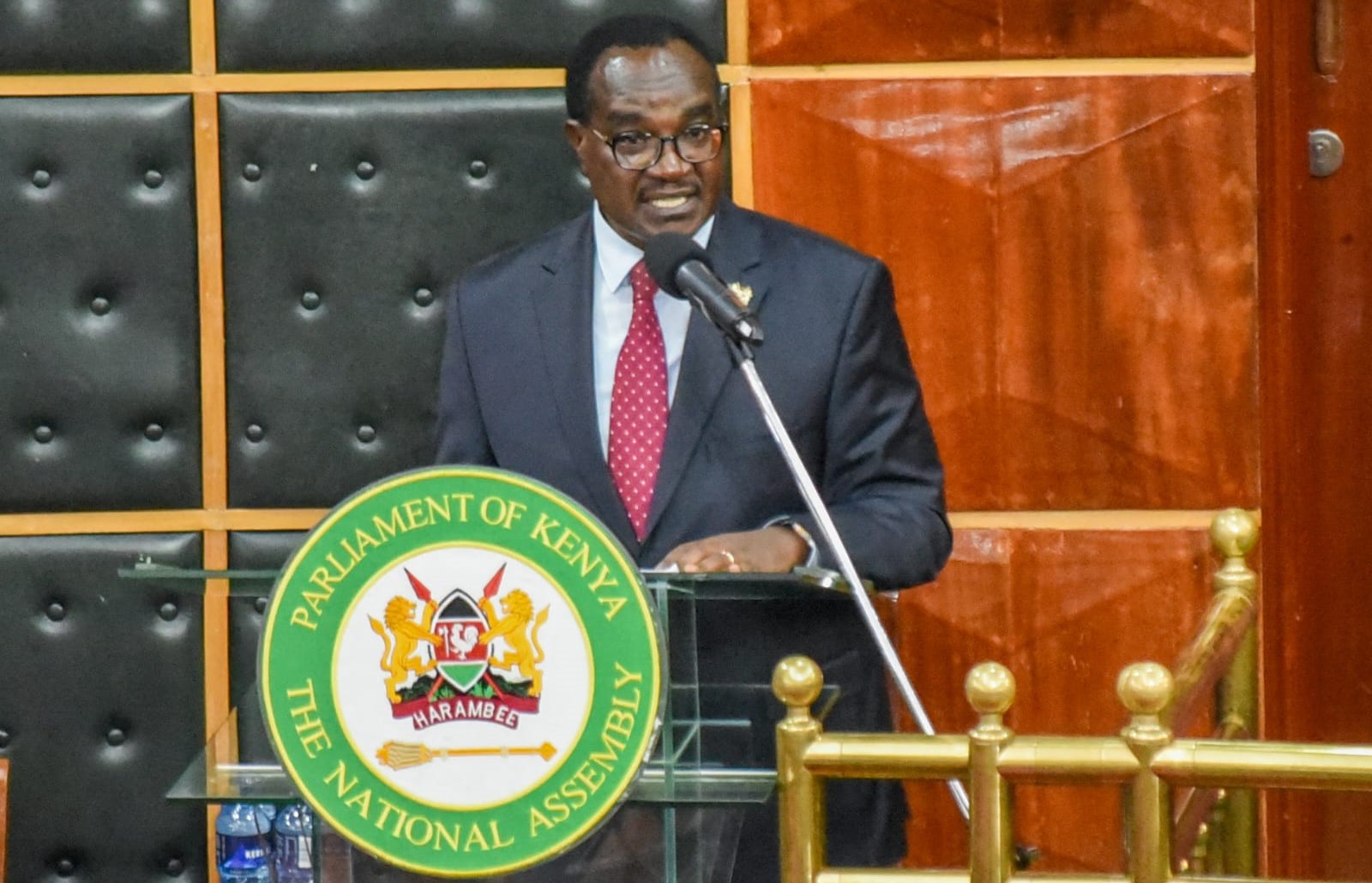Treasury wants Supreme Court to halt nullification of Finance Act 2023

The Treasury argues that it is logistically and practically unfeasible to immediately revert to the Finance Act 2022 due to the complex system and software requirements involved.
The National Treasury has filed an urgent appeal with the Supreme Court, seeking to temporarily halt the implementation of the Court of Appeal's decision that declared the Finance Act 2023 unconstitutional.
The Treasury argues that it is logistically and practically unfeasible to immediately revert to the Finance Act 2022 due to the complex system and software requirements involved.
More To Read
- From colonial cells to court reforms: A walk through Kenya’s Judiciary Museum preserving legal, freedom struggles
- State agencies directed to pay Sh2.2 billion owed to Posta to avert shutdown
- Funding shortage puts EACC’s anti-graft war at risk- Auditor General
- KNEC faces Sh3.7 billion funding shortfall, raising fears over KCSE disruptions
- Judiciary rolls out staff census in push for data-driven reforms
- MPs push Treasury to curb rising fees on unused foreign loans
In the appeal, the Treasury highlights the extensive updates needed for various platforms and revenue collection systems, as well as the necessity for detailed engagements with software providers.
"The invalidity of the Finance Act 2023 creates uncertainty in revenue collection and disrupts the government's ability to function efficiently," the National Treasury stated.
The Treasury further contends that the Court of Appeal erred in its decision by overturning its own precedents, thus undermining judicial consistency. They argue that relying on the Finance Act 2022 for the current fiscal year is legally invalid and contradicts the principles of governance and the rule of law.
This ruling, according to the Treasury, has precipitated a constitutional crisis by obstructing the government’s lawful revenue collection and fund allocation processes. The Treasury cautions that without a current legal framework for revenue collection, a stay could lead to a government shutdown.
"Without a stay, the government faces potential legal challenges, including claims for contempt of court due to the disruption in statutory financial operations," the appeal reads.
The National Treasury emphasises that the cessation of essential public services could lead to widespread dysfunction, affecting millions of citizens who rely on them. They also note that the implementation of the 2022 tax regime is not just a simple rollback but a significant overhaul that requires time and resources to execute properly.
On Wednesday, the Court of Appeal declared significant portions of the Finance Act 2023 unconstitutional, a decision that could severely impact the government's ability to finance the national budget. The three-judge bench, comprising Justices Kathurima M'Inoti, Agnes Murgor, and John Mutivo, found that Parliament failed to adhere to the prescribed legislative procedure by introducing new sections without conducting public participation.
 The National Treasury building. (Photo: Yasuyoshi Chiba/AFP)
The National Treasury building. (Photo: Yasuyoshi Chiba/AFP)
This ruling spells trouble for the government, which had anticipated raising nearly Ksh 300 billion through the Finance Act 2023. Enacted in June of last year, the Act introduced the electronic tax invoice management system (E-TIMS) for businesses, revised the management of value-added tax (VAT), increased VAT on fuel, and introduced new tax bands for Pay As You Earn (PAYE). The court has now nullified all these provisions.
The Finance Act 2023 raised fuel VAT from 8% to 16%, causing a spike in fuel prices across the country. Additionally, the government imposed higher PAYE rates on high-income earners, subjecting those earning over Sh500,000 per month to a tax rate of up to 32.5% and those earning over Sh800,000 per month to a tax rate of 35%. The court has also declared these PAYE revisions unconstitutional.
Previously, the High Court had declined to rule the PAYE revisions unconstitutional, stating it was a policy matter outside its jurisdiction. However, the Court of Appeals disagreed with this stance.
The government had projected raising up to Sh311 billion from the Finance Act 2023. The Kenya Revenue Authority reported a revenue increase of Sh241 billion from July 2023 to June 2024, which was partially attributed to the Act. The court determined that the introduction of several sections of the Act after public participation in the original bill violated the constitutional requirement for public involvement in the legislative process.
The court said in their decision, "Therefore, we declare that the passing of the Finance Act, 2023, violated Articles 220–1a and 221 of the Constitution, as well as sections of the Public Finance Management Act, which sets out how budgets are made. This makes the Finance Act, 2023 fundamentally flawed, void from the start, and therefore unconstitutional."
This ruling follows closely on the heels of President Ruto's withdrawal of the Finance Bill 2024, after Parliament deleted all its clauses, resulting in a projected Sh344 billion revenue loss. The Court of Appeal's decision on the Finance Act 2023 could further compound the government's fiscal challenges, potentially leading to a revenue shortfall of up to Sh300 billion.
Despite the ruling, the court declined to issue orders for tax refunds, noting that this issue had not been considered by the High Court. The judges emphasised that laws passed by Parliament are presumed constitutional until ruled otherwise by the courts.
The judges noted that the Affordable Housing Act of 2024's enactment resolves the housing tax provisions in the Finance Act 2023.
Top Stories Today














































